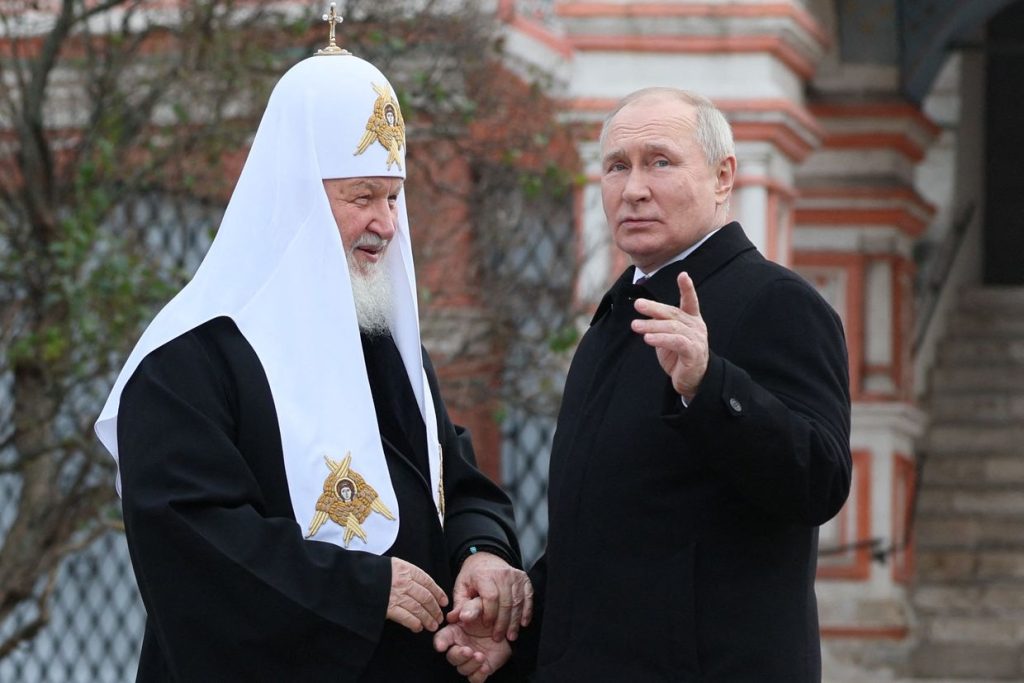Estonia’s parliament passed a resolution declaring the Russian Orthodox Church, also known as the Moscow Patriarchate, as an institution that sponsors the military aggression of the Russian Federation. The church has been a vocal supporter of Russia’s war against Ukraine, with Patriarch Kirill, the head of the church, publicly backing Russian President Vladimir Putin. The parliament emphasized that their stance was against the institution and not the congregants of the church, and it was important to uphold religious freedom while condemning the church’s support for aggression. Estonia has previously accused leaders of the Estonian Orthodox Church, under the Moscow Patriarchate, of endorsing Russia’s actions, leading to the departure of the church’s leader, Metropolitan Yevgeniy.
Ukraine has also accused the Moscow Patriarchate-linked Ukrainian Orthodox Church of being complicit in supporting Russia’s war efforts. The Security Service of Ukraine announced that Metropolitan Arsenii, associated with the church in Donetsk Oblast, was suspected of disclosing information about the location of Ukrainian troops. The church has been criticized for using the ‘Russian World’ ideology to justify aggression and further expand Russian influence. The Estonian parliament’s resolution reflects a growing international concern over the role of the Russian Orthodox Church in supporting Russia’s military actions in Ukraine.
Patriarch Kirill of Moscow, the head of the Russian Orthodox Church, issued an order titled “The Present and Future of the Russian World,” which was perceived as endorsing Russia’s war against Ukraine. The order was seen as promoting militarization and expansionism by using spiritual and moral justifications for the military operation. This further fueled accusations against the Moscow Patriarchate for propagating propaganda and supporting Russian aggression. The church’s role in promoting the ‘Russian World’ ideology as a justification for aggression has come under scrutiny, leading to Estonia’s parliament taking a strong stance against the church’s involvement in military aggression.
The conflict between the Russian Orthodox Church and Ukraine’s government reflects the broader tensions between the two countries. The church’s support for Russian actions in Ukraine has strained relations with the Ukrainian government and fueled accusations of collusion with the Russian military. The Moscow Patriarchate’s influence in Ukraine has faced backlash, with the government taking measures to counter the church’s alleged support for aggression. The situation highlights the complex interplay between religion, politics, and conflict in the region, with implications for the broader relationship between Russia, Ukraine, and European countries like Estonia.
The issue of the Russian Orthodox Church’s involvement in supporting military aggression raises questions about the role of religious institutions in conflicts. The church’s alignment with political agendas and support for war efforts has drawn criticism and condemnation from international bodies, governments, and civil society. The Estonian parliament’s resolution represents a step towards holding the Moscow Patriarchate accountable for its alleged role in promoting aggression and militarization. It also underscores the importance of upholding religious freedom while addressing the misuse of religious institutions to further political goals that undermine peace and stability in the region.
The implications of the Estonian parliament’s resolution extend beyond the condemnation of the Russian Orthodox Church to a broader discussion on the intersection of religion, politics, and conflict. The church’s support for Russia’s military actions in Ukraine has raised concerns about the manipulation of religious beliefs and institutions for political purposes. Addressing these concerns requires a nuanced approach that upholds the principles of religious freedom while safeguarding against the misuse of religion to justify violence and aggression. The resolution serves as a call to action for other countries and international organizations to scrutinize the role of religious institutions in conflicts and take steps to ensure that religious freedom is upheld while preventing the abuse of religion for political ends.


